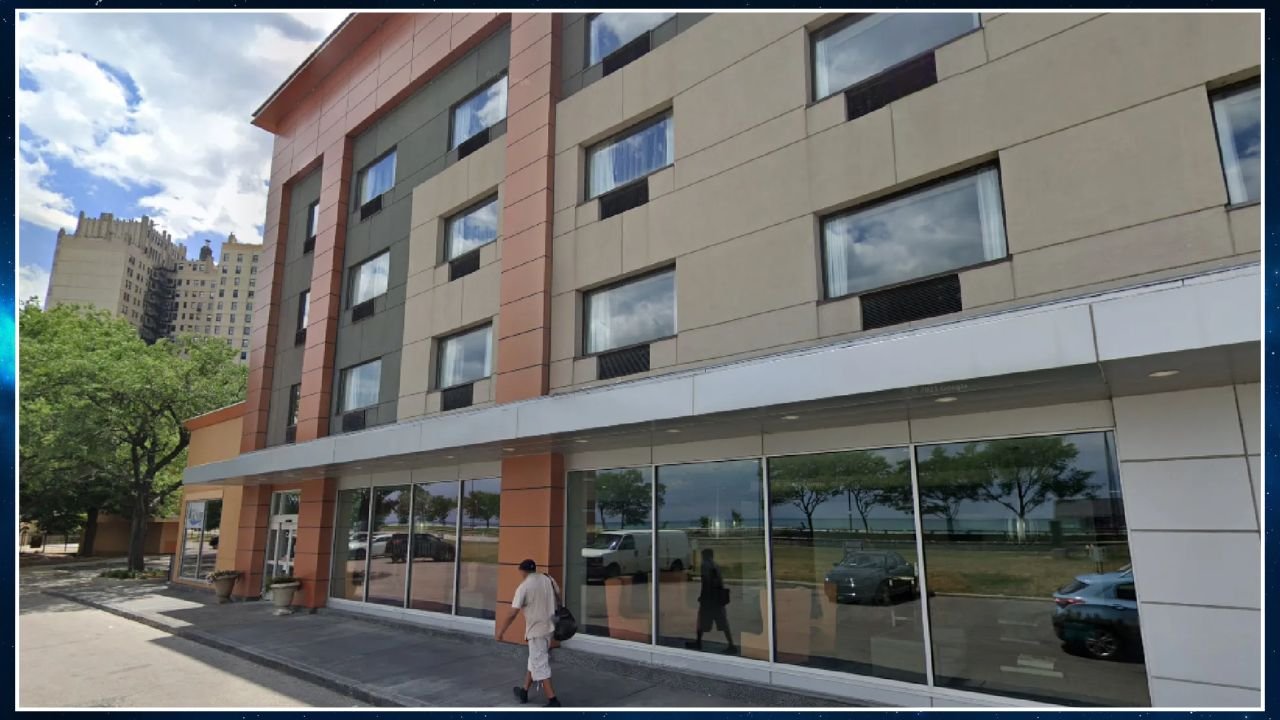CHICAGO — Two major homeless shelters in Kenwood and West Lawn will shut down in the coming months, after city officials reversed their earlier commitment to take over operations from the state, citing mounting budget pressures.
The Department of Family and Support Services announced the closures Sunday, stating that the Midway Shelter at 7353 S. Cicero Ave. will shut down by June 30, while the Kenwood facility at 4900 S. DuSable Lake Shore Drive will phase out within six months.
City Reverses Course on Shelter Takeover
Both shelters were originally opened by the state to house migrants and asylum seekers, as Chicago faced an influx of arrivals from Texas and other states. They were later folded into the city’s system under the “One System Initiative.”
Earlier this year, city officials had said they would assume control of both locations, continuing their operations indefinitely. However, the plan was quietly scrapped.
Residents at the Midway shelter are already being relocated, according to Department spokesperson Linsey Maughan. For the Kenwood shelter, the city will contract with other housing providers to transition residents elsewhere before its final closure.
Federal Cuts and Rising Costs Blamed
Maughan cited “federal budgetary pressures” as the key reason for the closures, pointing to massive staffing reductions at federal agencies and a proposed 44% cut to the U.S. Department of Housing and Urban Development under President Trump’s 2026 budget plan.
The Kenwood shelter contributed over 750 beds, and Midway supported housing for around 900 people, making the closures a significant loss to the city’s overall capacity of 7,445 shelter beds (as of February).
Housing costs have also surged. In Kenwood’s 60615 ZIP code, fair market rent for a one-bedroom apartment jumped from $1,230 in 2020 to $1,840 in 2025, according to HUD data.
Homelessness Rates Continue to Climb
According to the Illinois Office to Prevent and End Homelessness, homelessness in Chicago rose 207% between 2023 and 2024, with a 116% increase statewide — largely due to housing inflation and the migrant crisis.
Colleen Mahoney, the office’s assistant director, previously warned that “the need for shelter is huge,” a sentiment echoed by housing advocates who supported the failed Bring Chicago Home initiative. That proposal, which voters rejected last year, aimed to increase real estate transfer taxes on million-dollar properties to fund homelessness prevention.
Political Pushback and Community Pressure
The city’s original plan to maintain the Kenwood shelter indefinitely faced intense opposition from residents in the Indian Village area, who raised concerns over transparency and neighborhood impacts during a series of contentious public meetings.
State Sen. Robert Peters criticized the city’s communication, saying, “I have been clear in our need for transparent communication that fully engages the community’s voice while also helping homeless families transition into secure housing.”
In West Lawn, Ald. Derrick Curtis (18th) opposed an earlier proposal to convert the Midway shelter into a singles-only facility.
Despite requests, Mayor Brandon Johnson’s office declined to confirm whether local pushback played a role in the reversal, beyond citing the broader budget constraints.
Help Still Available for Those in Need
While the closures mark a significant contraction of Chicago’s shelter infrastructure, officials urge anyone at risk of homelessness to contact 311 for placement assistance or 211 for help with food, housing, or mental health support.
What do you think about the closure of Chicago’s major shelters amid rising homelessness? Share your thoughts with us at ChicagoSuburbanFamily.com.












